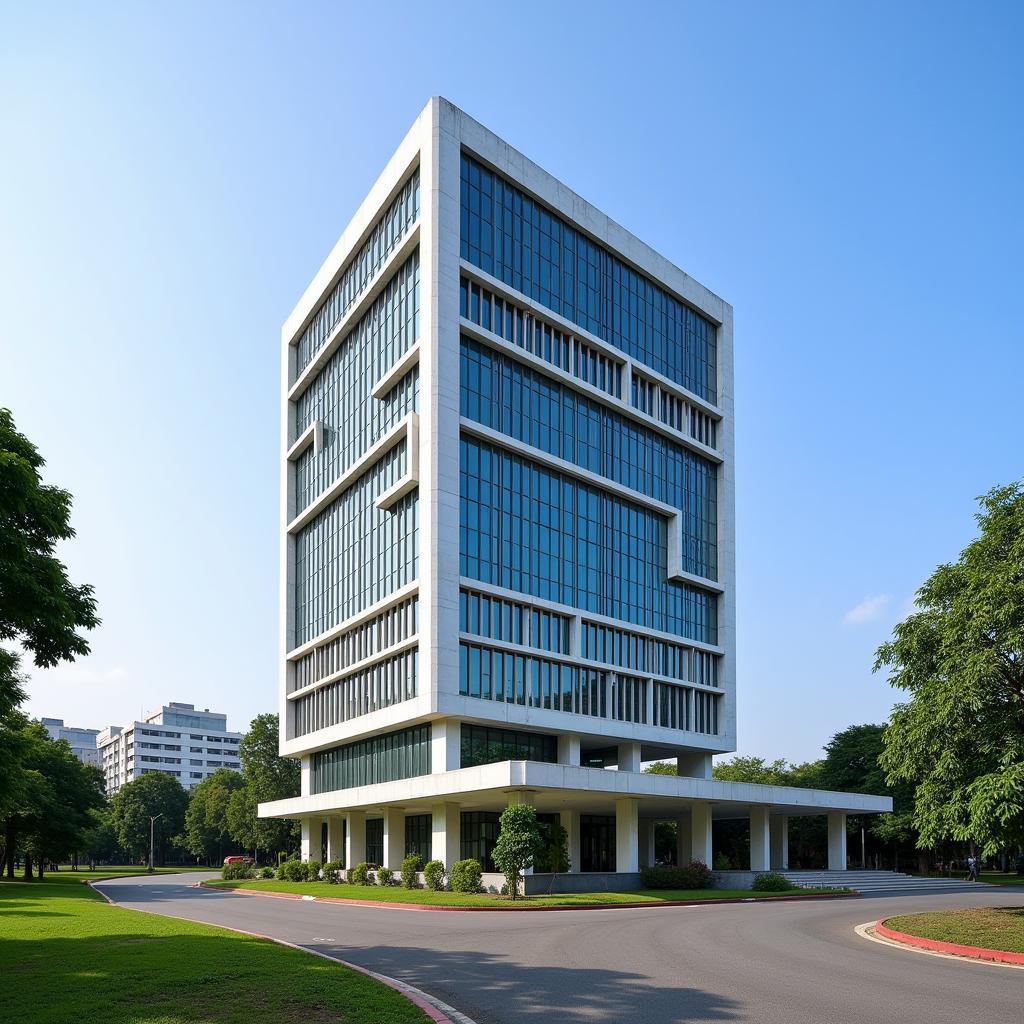The Asean Organization, officially the Association of Southeast Asian Nations, is a political and economic union of 10 member states in Southeast Asia. Formed in 1967, it has played a crucial role in fostering peace, stability, and prosperity in the region. This article will delve into the intricacies of the ASEAN organization, exploring its history, structure, objectives, and impact on Southeast Asia and the world.
 ASEAN Organization Headquarters in Jakarta, Indonesia
ASEAN Organization Headquarters in Jakarta, Indonesia
A Deep Dive into the ASEAN Organization’s History and Formation
The ASEAN organization emerged from the ashes of regional conflicts and Cold War tensions. Its founding fathers envisioned a Southeast Asia free from internal strife and external interference. The Bangkok Declaration, signed on August 8, 1967, laid the foundation for a regional grouping focused on economic, social, cultural, technical, and scientific cooperation. This marked the official birth of the ase organization. The initial members were Indonesia, Malaysia, the Philippines, Singapore, and Thailand. Over the years, Brunei, Vietnam, Laos, Myanmar, and Cambodia joined, expanding the organization’s reach and influence.
The early years of the asean organization were characterized by a focus on building trust and promoting dialogue among member states. The organization played a vital role in resolving regional disputes and fostering a spirit of cooperation.
The Structure and Objectives of the ASEAN Organization
The ASEAN organization’s structure is designed to facilitate decision-making and implementation of its diverse initiatives. The ASEAN Summit, comprising the heads of state of member countries, is the supreme policy-making body. The ASEAN Secretariat, based in Jakarta, Indonesia, provides administrative support and coordinates the organization’s activities. Understanding the ase organization chart is crucial to understanding the decision-making processes. The organization operates on the principles of consensus and non-interference in the internal affairs of member states.
The primary objectives of the ASEAN organization encompass a wide range of areas, including promoting economic growth, social progress, cultural development, regional peace, and cooperation with international partners. Recognizing asean as an intergovernmental organizations is key to appreciating its role on the global stage.
What are the key pillars of the ASEAN Community?
The ASEAN Community, envisioned as a people-centered and rules-based entity, rests on three main pillars: the ASEAN Political-Security Community, the ASEAN Economic Community, and the ASEAN Socio-Cultural Community. These pillars work in tandem to achieve the organization’s overarching goals.
How does ASEAN promote economic cooperation?
ASEAN promotes economic cooperation through initiatives like the ASEAN Free Trade Area (AFTA), which aims to reduce tariffs and non-tariff barriers among member states. This fosters greater trade and investment flows within the region.
ASEAN’s Impact on Southeast Asia and Beyond
The ASEAN organization has significantly impacted Southeast Asia, transforming it from a region of conflict to one of relative peace and prosperity. It has facilitated economic integration, promoted regional stability, and fostered a sense of shared identity among its diverse member states. The organization also plays an increasingly important role in global affairs, engaging with major powers and international organizations.
“ASEAN’s strength lies in its ability to bring together diverse nations with a shared vision for a prosperous and peaceful future,” states Dr. Maria Santos, a prominent Southeast Asian political analyst.
“The organization’s success in promoting regional stability has created a conducive environment for economic growth and development,” adds Professor Lee Wei Ming, an expert on ASEAN economics.
Conclusion
The ASEAN organization has come a long way since its inception. It has played a pivotal role in shaping the political, economic, and social landscape of Southeast Asia. While challenges remain, the ase organization continues to strive towards its vision of a cohesive, prosperous, and peaceful region. Its continued success is crucial not only for Southeast Asia but also for the broader international community.
When you need assistance, please contact us at Phone Number: 0369020373, Email: aseanmediadirectory@gmail.com or visit our address: Ngoc Lien Village, Hiep Hoa, Bac Giang, Vietnam. We have a 24/7 customer service team.

